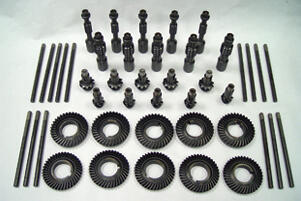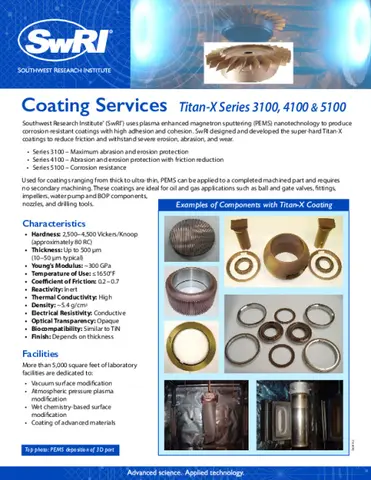Plasma enhanced chemical vapor deposition (PECVD) is a low temperature vacuum deposition process (<150 °C) that can deposit coatings and thin films of various materials onto the surface of a part. Southwest Research Institute provides research and development services to advance plasma enhanced chemical vapor deposition technologies, including:
- Plasma Immersion Ion Deposition (PIID)
- Long Pipe Plasma Immersion Ion Deposition
PECVD Deposition for Coatings & Thin Films

Diamond Like Carbon (DLC) coated automotive components.
PECVD can be used to deposit protective thin film coatings on mechanical parts and even pipes used in offshore oil and gas. SwRI provides plasma enhanced chemical vapor deposition services for several applications in addition to applied R&D, including:
- Diamond Like Carbon Coating & Thin Films (DLC Coating)
- D-Armor Coating Series 1100 and 2100
- Hydrophobic/Anti-sticking Coatings & Thin Films
- LotusFloTM (superhydrophobic coatings)
Superhydrophobic Coating Technology
Superhydrophobic coatings are highly effective at repelling water and other liquids. SwRI developed LotusFloTM, a superhydrophobic coating technology, to prevent clogging from asphaltenes, paraffins, and other sticky substances inside of offshore oil pipes. Listen to a podcast about LotusFlo superhydrophobic coatings.

